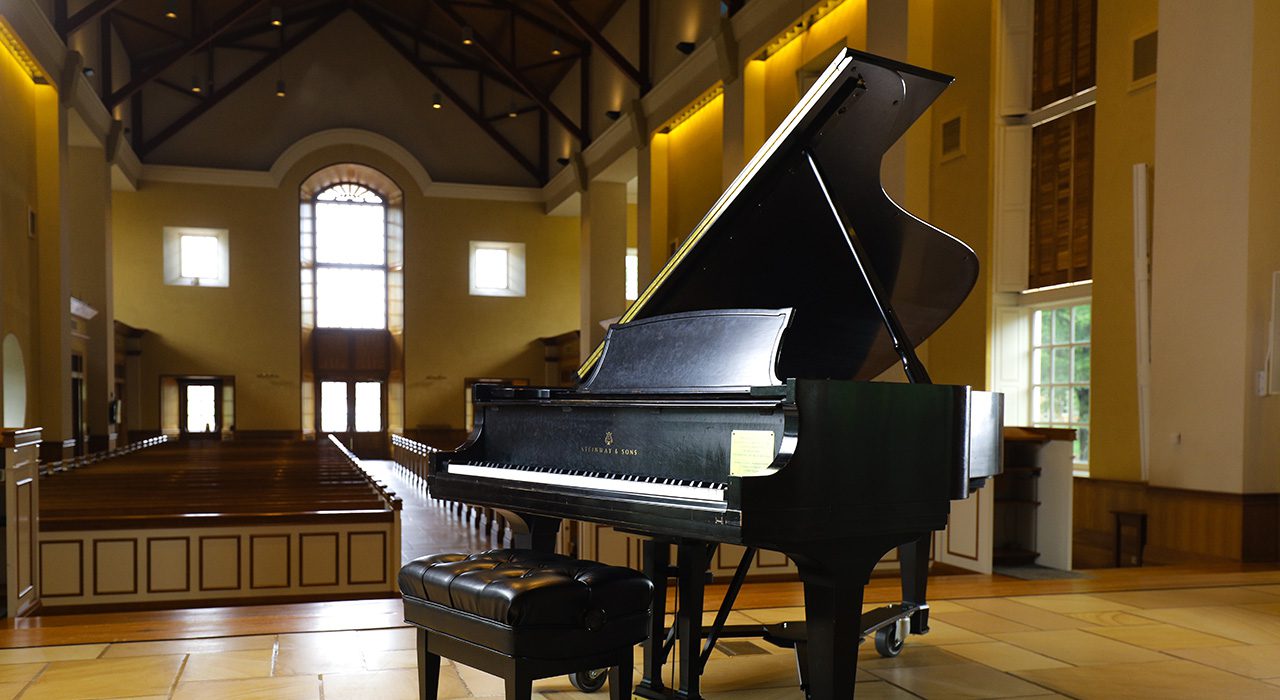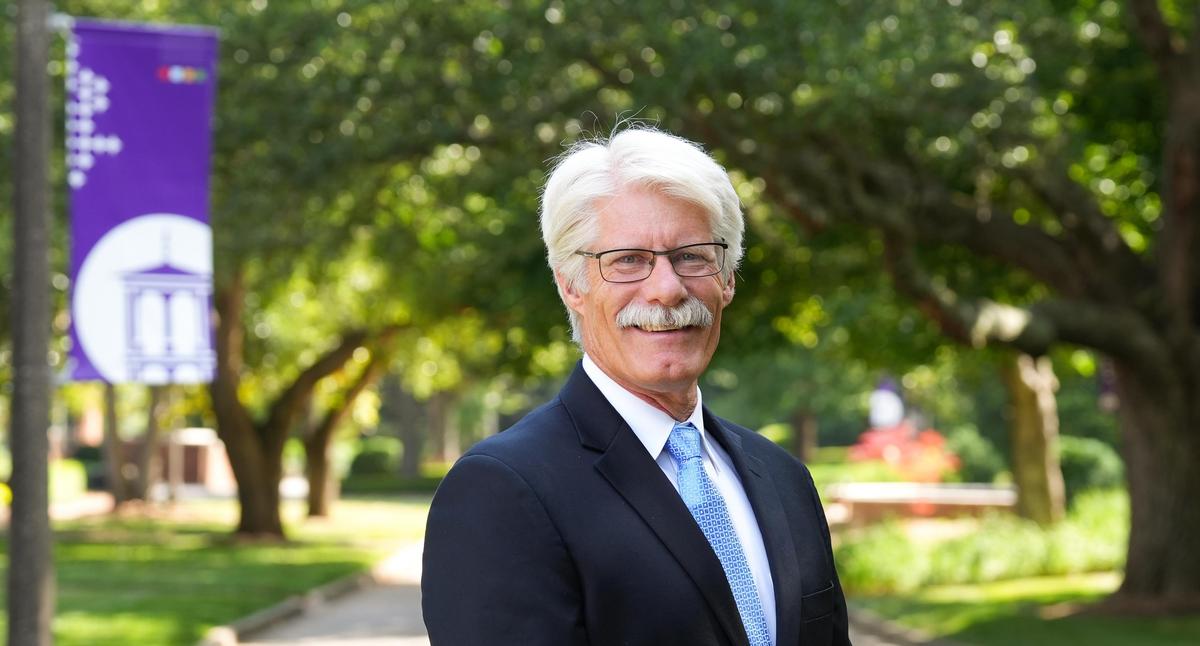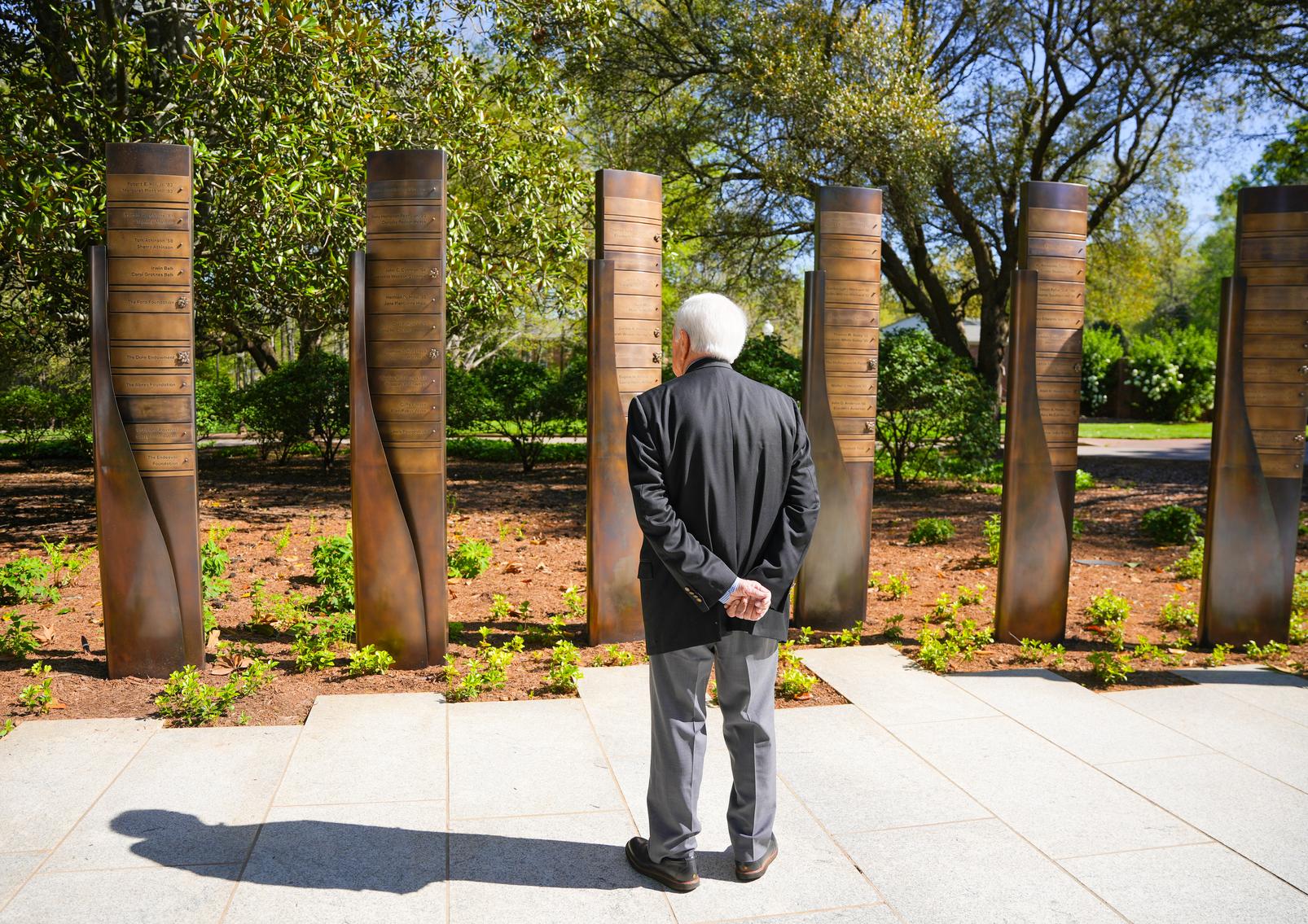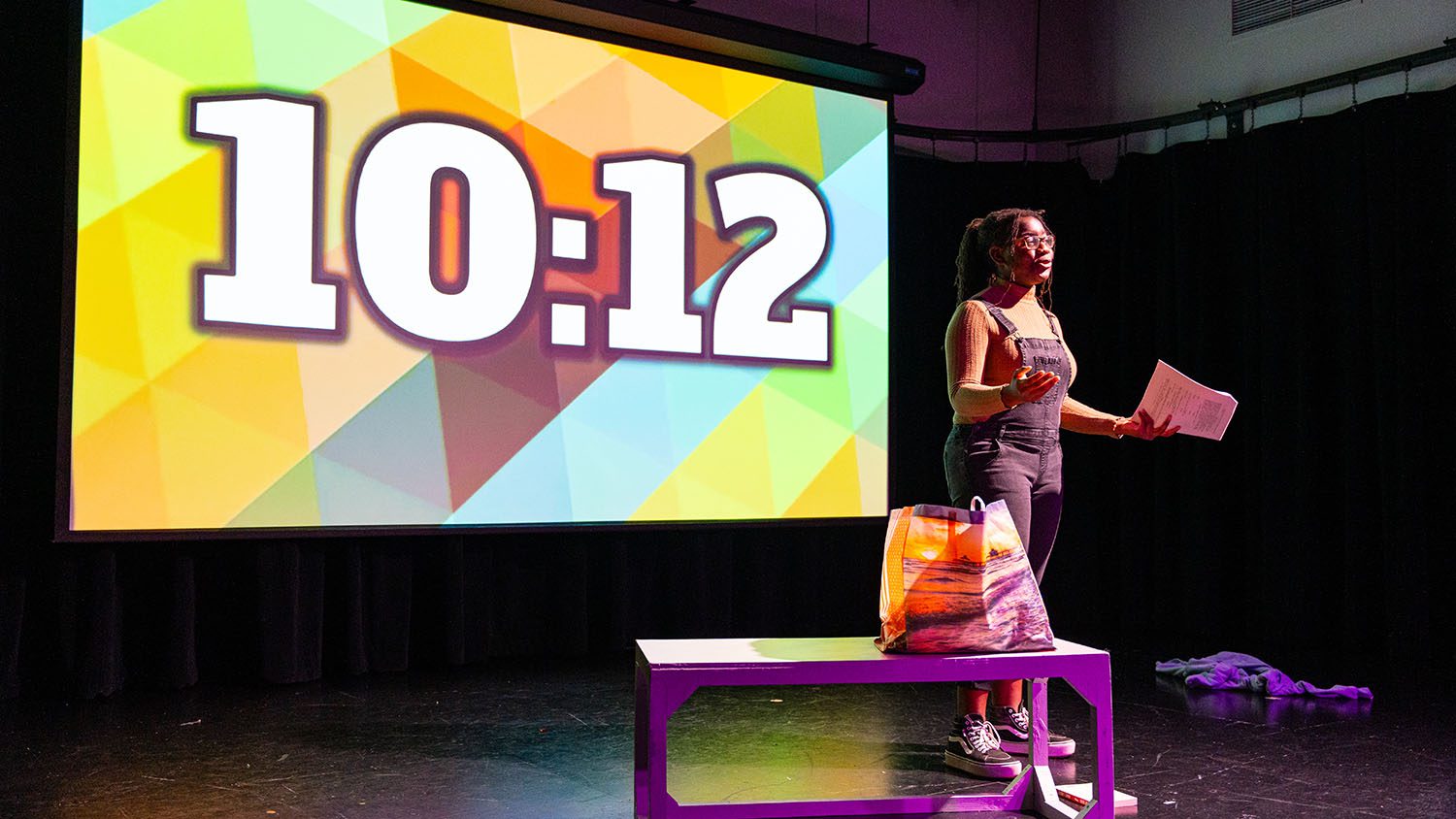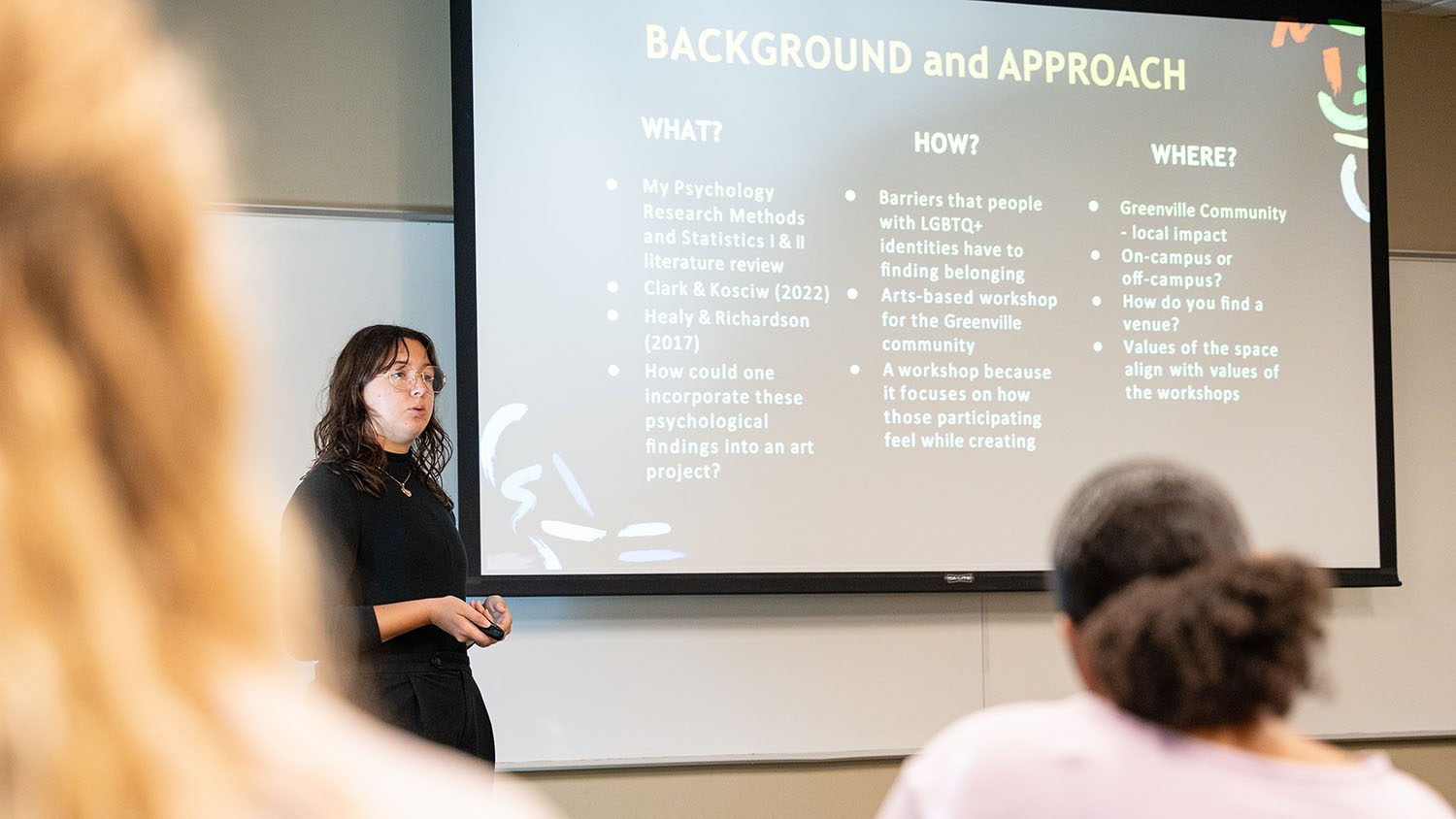Program Overview
Table of Contents
What is a church music degree?
You draw inspiration from the church and want to be part of what creates a resplendent atmosphere for worship – liturgy, readings, prayer, sacraments, and sermons, but most of all, sacred music. A church music degree is a course of study that prepares students for careers as church musicians.
Why study church music at Furman?
Accredited by the National Association of Schools of Music since 1938, the Furman University Department of Music is recognized as one of the highest-rated and most comprehensive among national liberal arts and sciences colleges, offering degree programs for passionate performers, composers, theorists and music educators. We attract ambitious musicians from across the globe – those who desire to major in music as well as those who wish to major in another discipline while continuing their music.
Imparting a conservatory-quality education, Furman’s music program and those who lead it are committed to equipping you with the tools you need to succeed in the professional world. You’ll sharpen your analytical, listening, creative, improvisation, communication, problem-solving, team-building, time management, interpretation and other skills, boosting competencies that are readily transferable no matter the career path you take.
In Furman’s intentionally small studios, faculty are free to mentor, help you advance, assist you in exploring the right repertoire, and are integral to your overall growth as a musician. Plan a visit to Furman’s beautiful campus or start your application today. Learn more about the audition process.
How will you learn?
Furman’s Bachelor of Music in church music begins with a foundation comprising a series of courses aimed at developing your overall musicianship and your understanding of the nuances of music and beauty that define the parlance of music. Basic musicianship, including written, aural and keyboard components, launches the course sequence in your freshman year. It is part of a series taken by all music majors.
Develop your technique through weekly, one-on-one lessons with master teachers and acclaimed performing artists. Learn a new instrument (or two). Get to know the members of your new Furman music family, who you’ll study with over the next four years.
And because we are an exclusively undergraduate program, you are front and center, and need not compete with master’s and doctoral candidates. It bears repeating – Furman is well positioned to expose undergraduate musicians to multiple performances and individualized instruction which prepare you for a life of consequence in the arts world.
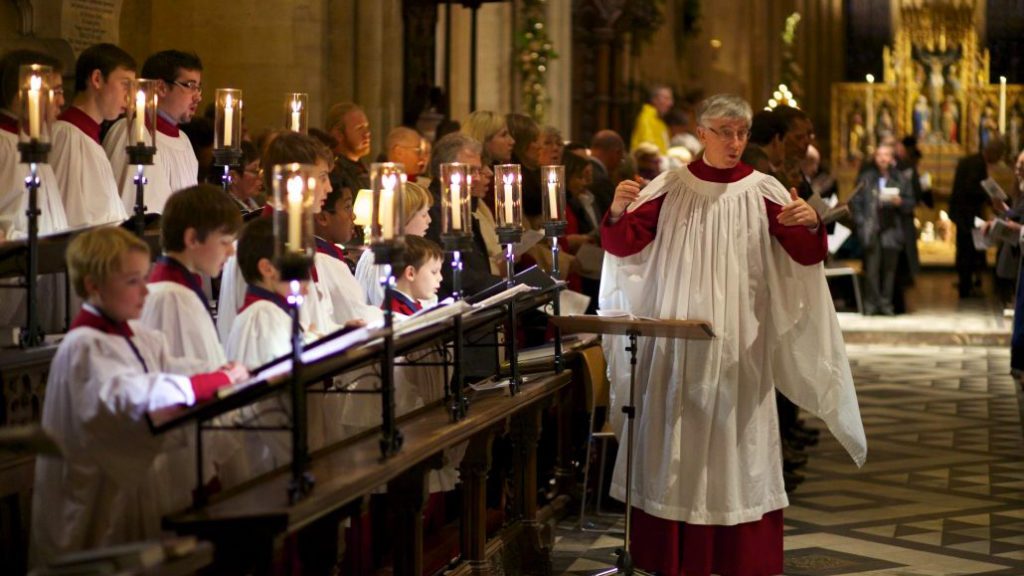
Careers for church music majors
As a church music major, you’ll be primed for the workforce with finely tuned analytical, listening, creative, improvisation, communication, problem-solving, team-building, time management, interpretation and other skills, which set you up for virtually limitless career options. Many of our graduates seek advanced degrees and go on to faculty positions at the finest universities in the country. Our music majors have landed positions such as:
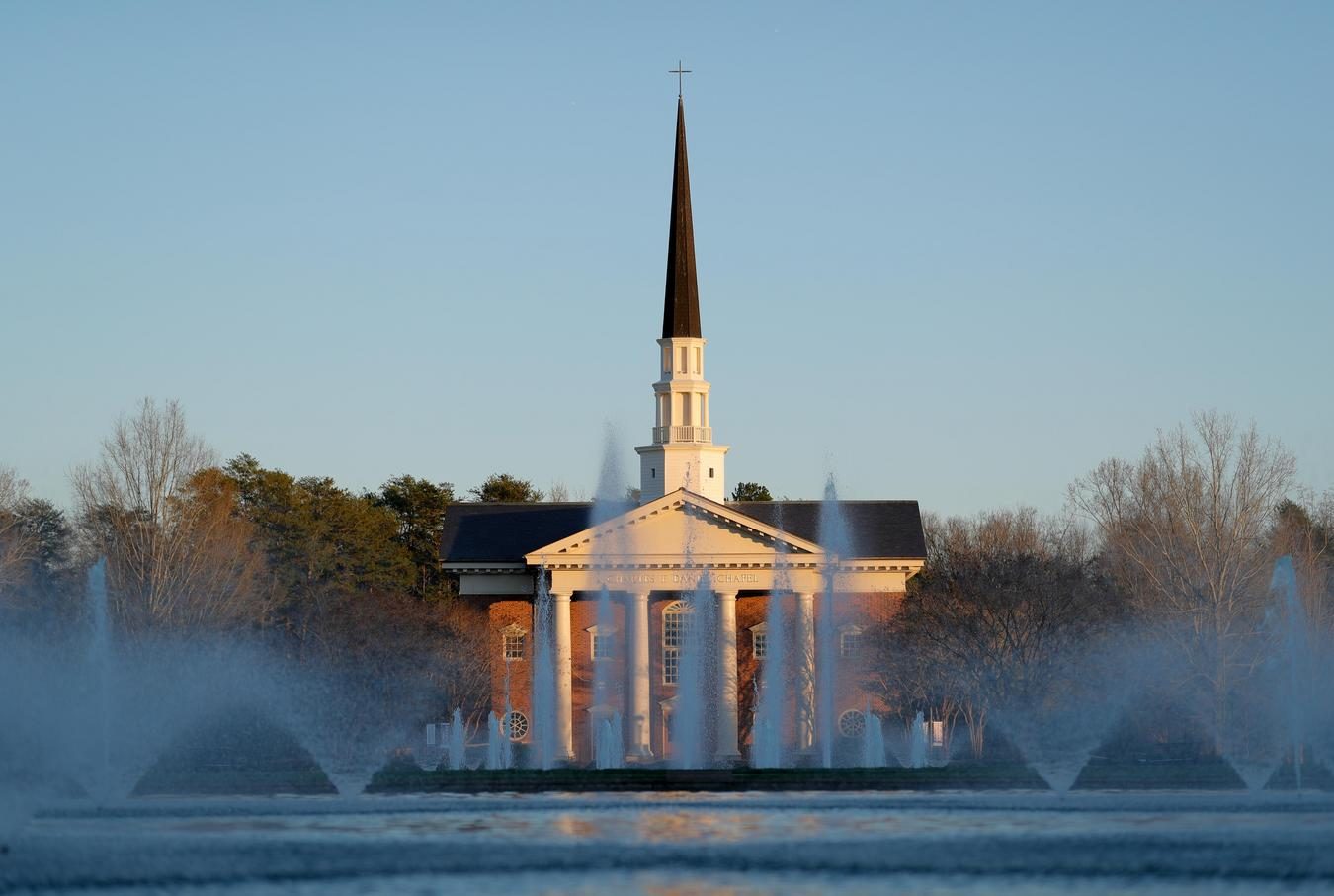
- Business development and marketing manager
- Chief executive
- Clergy staff member
- Composer
- Computer support specialist
- Entertainment and recreation manager
- Financial manager
- General and operations manager
- Historian
- Human resources specialist
- Industrial production manager
- Music, dance and extracurricular instructor
- Music director
- Music teacher, instructor or tutor
- Musician
- Network and computer systems manager
- Operations research analyst
- Producer or director
- Product and marketing specialist
- Public relations and fundraising manager
- Recruiter
- Research assistant
- Sales manager
- Social and human services specialist
- Software developer and software quality assurance analyst
- University music professor
- Worship music assistant
Featured church music courses
-
100%Music majors who participate in any engaged learning experience, from recitals to large ensembles, to study away, internships and research
-
53%Music majors who complete at least one internship
-
28%Music students who double major
What our students say
Our faculty
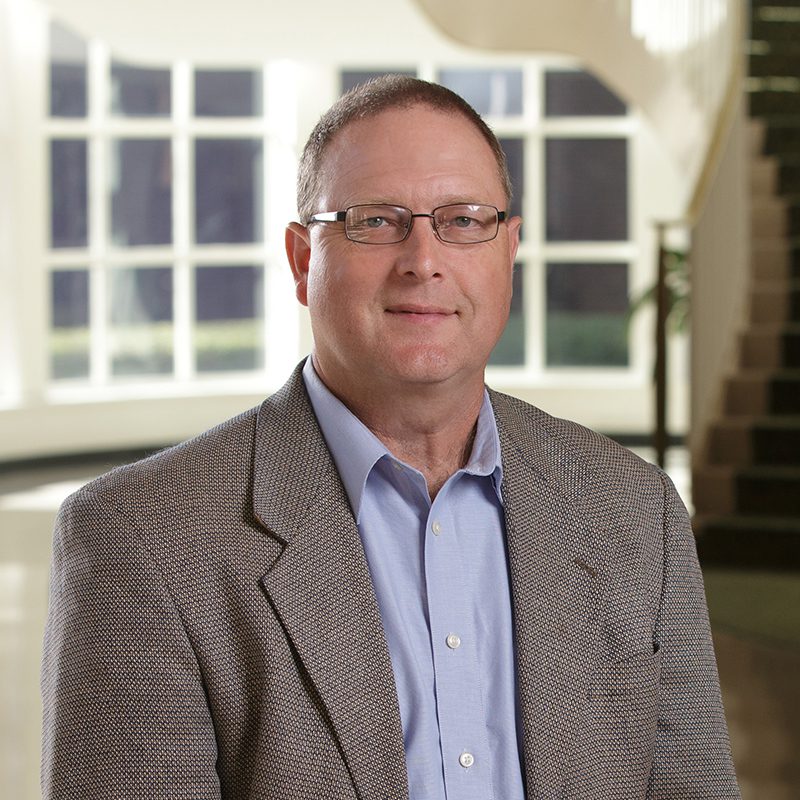
Mark Britt
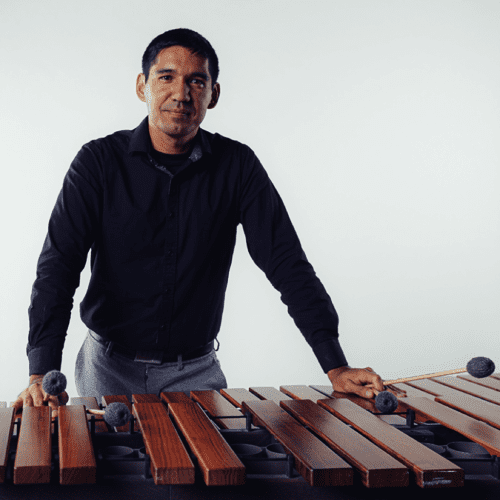
Omar Carmenates
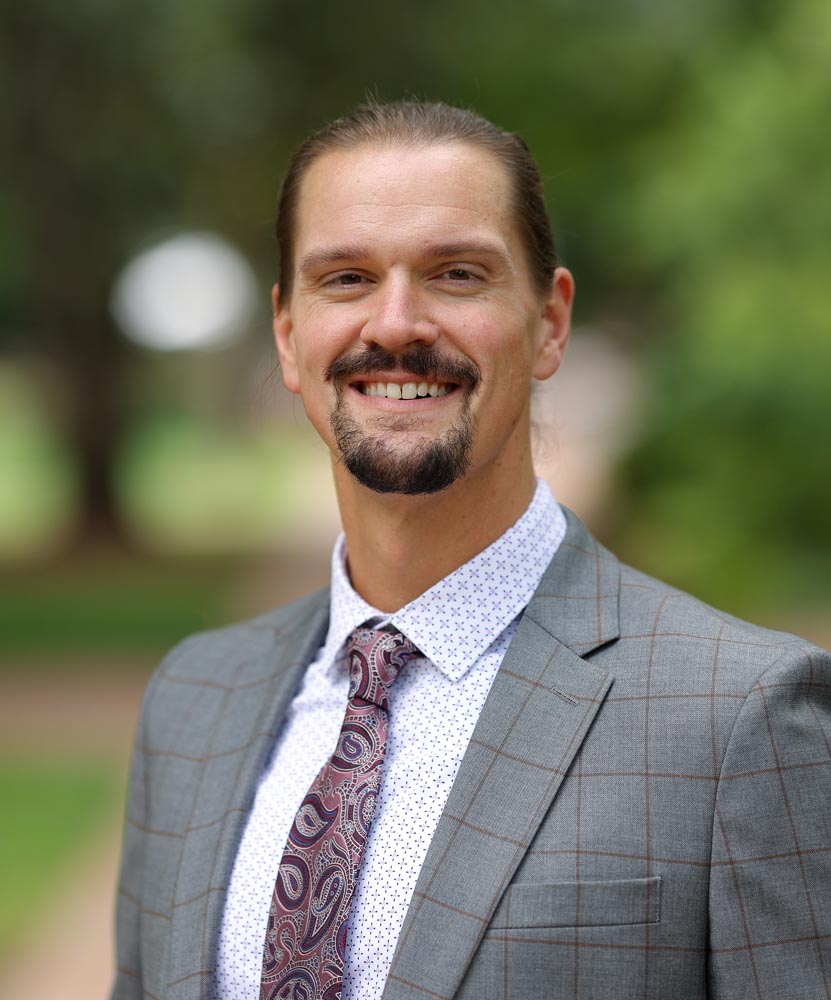
Benjamin Dobbs
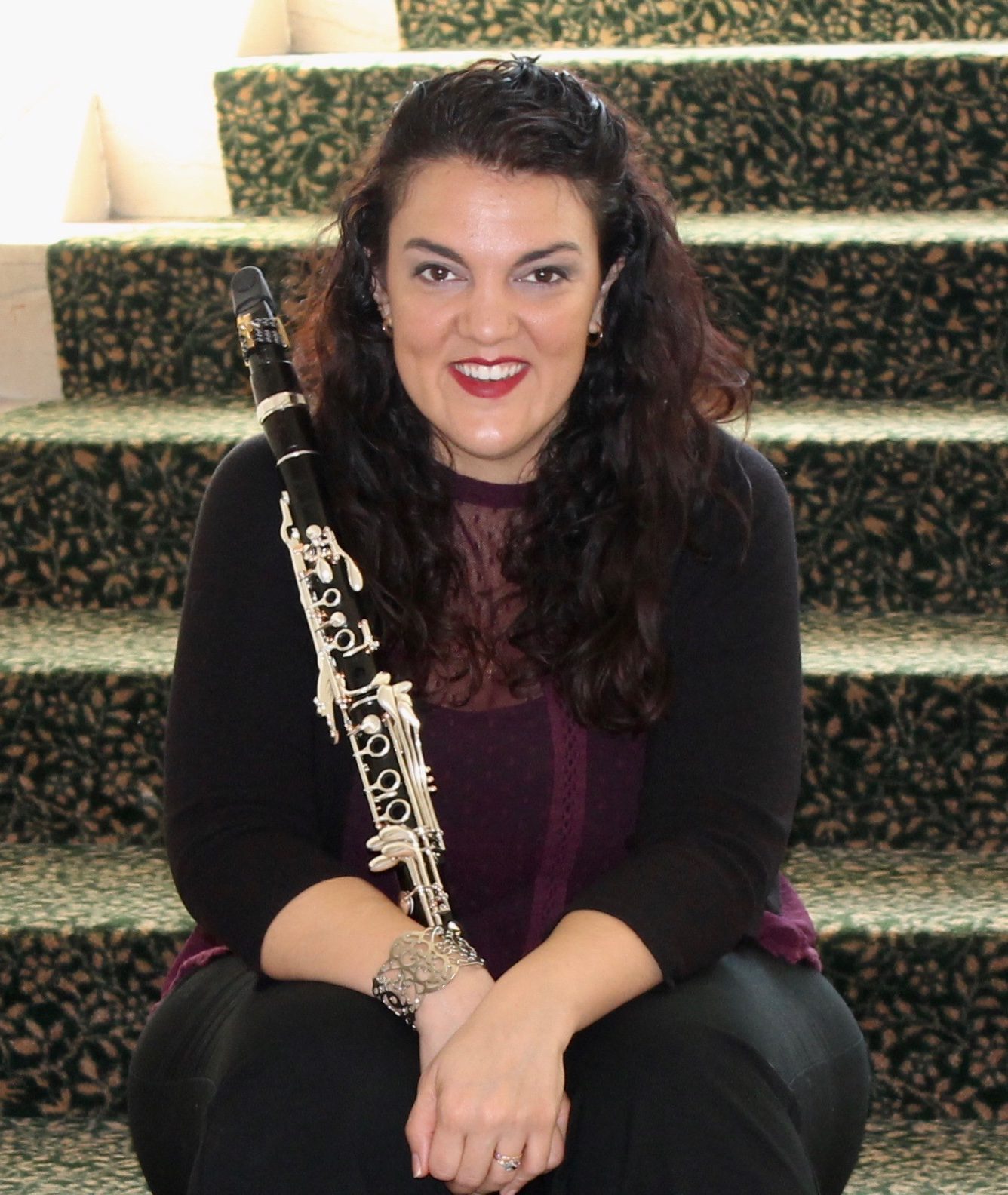
Anastasia Christofakis
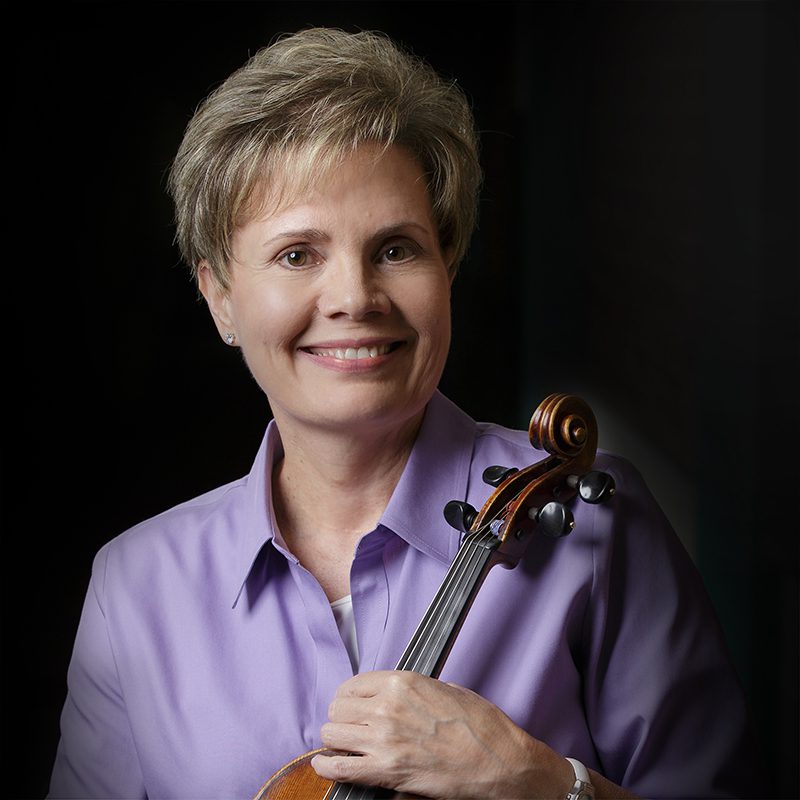
Anna Joiner
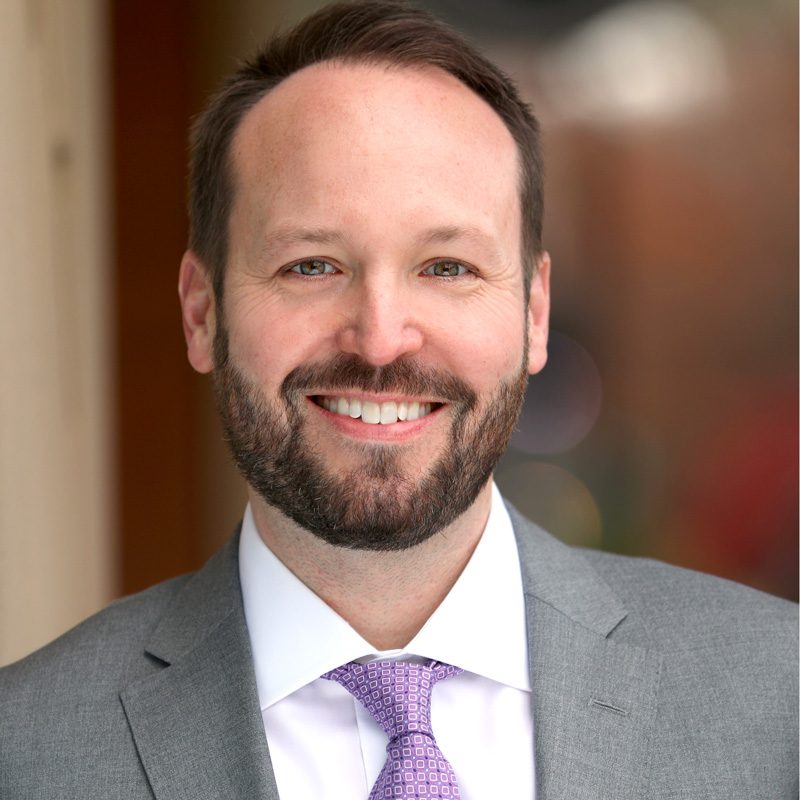
Grant Knox

Matt Olson
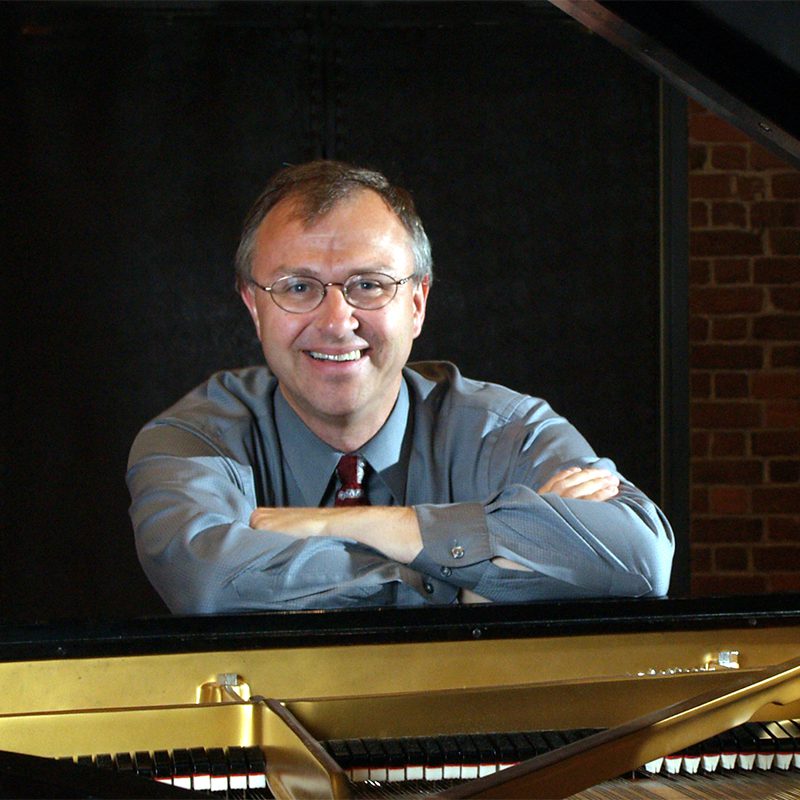
Derek Parsons
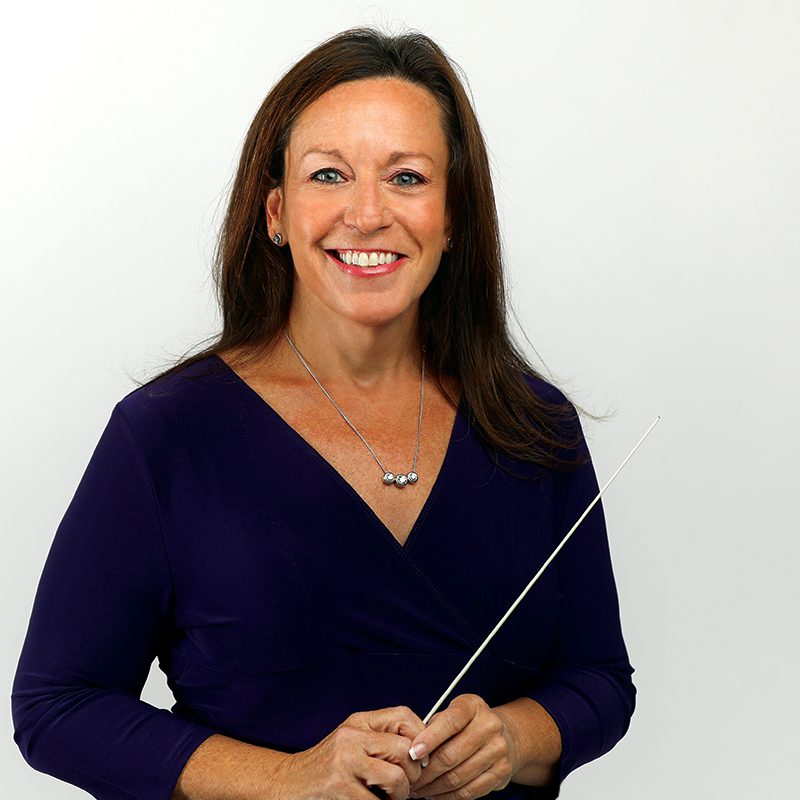
Sue Samuels
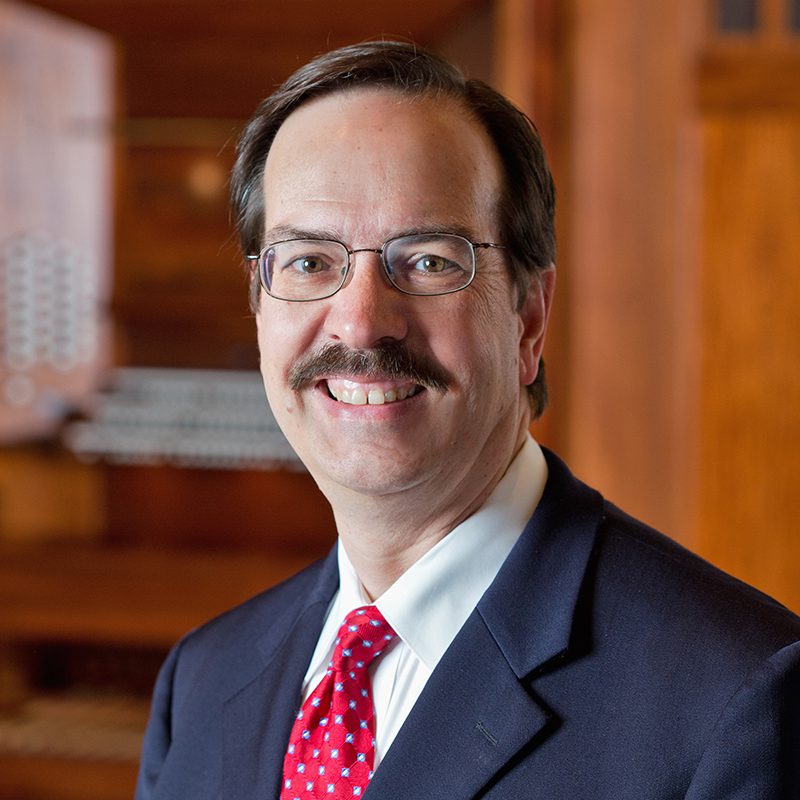
Charles Tompkins

Church Music Major F.A.Q.
An array of skills such as analytical, listening, creative, improvisation, communication, problem-solving, team-building, time management, interpretation and other skills position you for diverse career options.
Many of our graduates seek advanced degrees and go on to faculty positions at universities throughout the country. Our music majors have also worked as a business development and marketing manager, chief executive, clergy staff member, worship music assistant, composer, computer support specialist, entertainment and recreation manager, as well as many non-music positions, such as financial manager, general and operations manager and historian.
Train a global lens on your passion for music through “Music in Italy.” The semester-long, conservatory-style program began in 2006 with a partnership with the Accademia dell’Arte in Arezzo. Each fall, 10 to 14 students study Italian and music history amid the Tuscan landscape.
On top of the Italian language component offered at the Accademia, you’ll study applied music (voice, instrumental or keyboard) in individual weekly lessons and coaching sessions with Italian music teachers. Furman faculty teach a music history course and an interdisciplinary, experiential course, “Italian Art and Culture,” featuring a series of side trips and lectures revealing the richness of Tuscany’s stunning visual art and architecture.
You’ll collaborate in several “Movement for Musicians” sessions taught by Accademia dell’Arte faculty, which allow you to spend class time together with the Accademia’s theater students. You’ll take part in performances of chamber music and solo recitals both at the Accademia and in local venues. Regular concert attendance in Florence, overnight excursions, along with independent travel opportunities during a week-long fall break give you ample opportunity to experience the cultural life of Western Europe.
If a shorter study away is more your style, sign up for courses such as May Experience (MayX) “Opera Overload.” Students split time between Greenville, South Carolina, and New York City, and explore opera, its history in the United States (with a focus on the Metropolitan Opera as an institution), and various topics related to opera, such as elitism, racism and issues of power and sexuality.
The capstone experience of the church music degree unfolds during the spring term of your senior year. The Practicum in Church Music involves an internship at a Greenville-area church, equipping you with the practical experience in all areas of an active, excellent church music program. Furman students intending to major in music must perform an audition and complete a music theory placement examination. Final approval for a music degree takes place during your sophomore year.
Specific courses pertaining to the study of church music are supplemented by the opportunity to participate in Furman’s outstanding choral ensembles – Furman Singers, Furman Chamber Choir, and the Men’s and women’s Chorales – all of which are directed by experienced and committed church musicians who perform substantial sacred repertory in a variety of styles. The annual Furman University Church Music Conference brings to campus distinguished church musicians of national prominence to deliver lectures on subjects related to the study and practice of church music.
Recitals, concerts, master classes, camps and conferences – with over 260 events typically offered year-round, Furman is a vibrant part of both the Furman and Greenville music scene. Abundant on-stage opportunities for displaying your talent await at Furman.
The average base salary for graduates with a bachelor’s in church music is $47,000 annually, according to Payscale.com.
The Bachelor of Music in Church Music degree at Furman is a four-year program.
